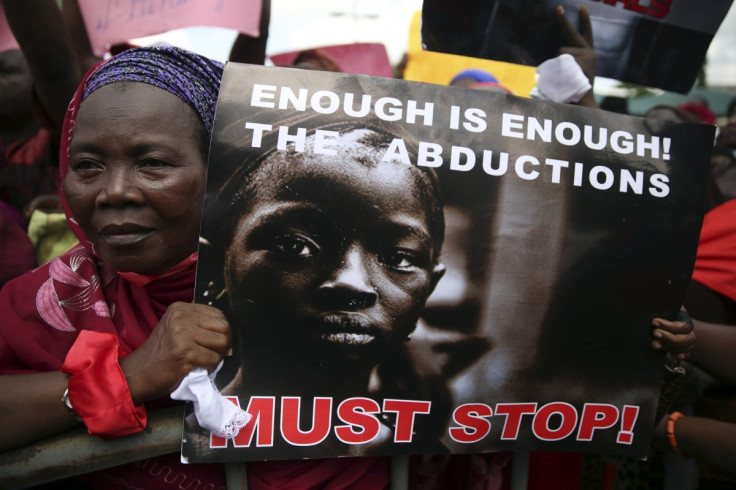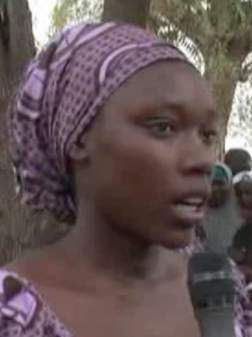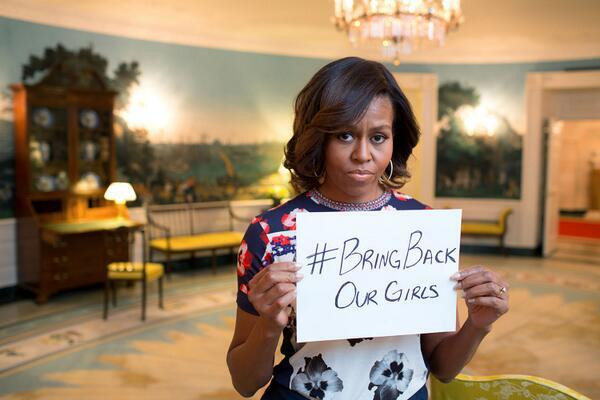Nigerian Girls Mass Abduction: Three Escaped School Girls Describe Boko Haram Captors
Abducted Schoolgirl: 'They threatened to shoot anyone who tried to escape'

Three Nigerian schoolgirls who were abducted by Islamist militant group Boko Haram have described how they managed to escape their captors.
The unnamed schoolgirls, who were among the 276 children kidnapped in April, revealed that after being snatched from their boarding school, they were transported in a convoy of lorries to the forest.
One of the girls revealed she was shot at by a gunman as she fled, having been sent to fetch water.
Another revealed how she and a friend jumped from one of the moving lorries as it slowed down. They spent a night in the bush before making their way back to their village, Chibok.

"They took us away in a convoy of lorries," explained one of the girls. "We travelled through the night before reaching the final destination in the forest. The following day we were sent to fetch water. That was when we seized the opportunity and bolted.
"Even when they were shooting at us, we took the chance and God helped us arrive in Chibok two days later," she said.
The second girl added: "They threatened to shoot anyone who tried to escape. As the vehicle slowed down along the road I jumped down with my friend. We spent the night in the bush and trekked back to Chibok the next day."
The girls' accounts came as it was reported that the 276 kidnapped girls had been split into four groups, complicating the search to find them.
The US, France and China have offered their support in the search for the schoolgirls who have been missing for four weeks.
The US is reportedly sending FBI agents to join a US military team in the search, while UK Special Air Service will assist Nigerian officers in attempting to intercept voice communications across large areas of the Nigerian jungle.
Canada also recently offered to provide the Nigerian government with surveillance equipment and technical expertise in the hunt for the missing schoolgirls.
The UK has sent a group of intelligence experts, while air and satellite surveillance is to be extended to the neighbouring countries of Cameroon, Chad and Niger amid fears the girls may be trafficked across the border to be sold as slaves.
The leader of Boko Haram, Abubakar Shekau, has threatened to sell the girls "on the market".
Their kidnap triggered international condemnation and led to a high-profile campaign calling for their release.

US First Lady Michelle Obama used Barack Obama's weekly presidential address to express her outrage and heartbreak for mass abductions.
Taking the place of US President Barack Obama on the weekly radio and internet presidential address, Mrs Obama described the mass abductions as an "unconscionable act" by grown men attempting to "snuff out the aspirations of young girls".
Earlier this week, Mrs Obama tweeted a picture of herself in the White House holding a sign featuring the hashtag #BringBackOurGirls.
The hashtag, which was created by Nigerian lawyer Ibrahim Musa Abdullahi, has been retweeted nearly 2 million times. A series of high-profile names, including former US Secretary of State Hillary Clinton, have also given their support to the social media campaign.
Protesters demonstrated at Nigeria's parliament in the capital city Abuja on 30 April and another mass rally took place outside the Nigerian Defence Headquarters in Abuja on 6 May.
Protests also took place in London, New York and Los Angeles, with further demonstrations planned in South Africa, Jamaica and Switzerland.
Prime Minister David Cameron told Sky News the abduction is "a ghastly situation, an act of pure evil".
© Copyright IBTimes 2025. All rights reserved.






















